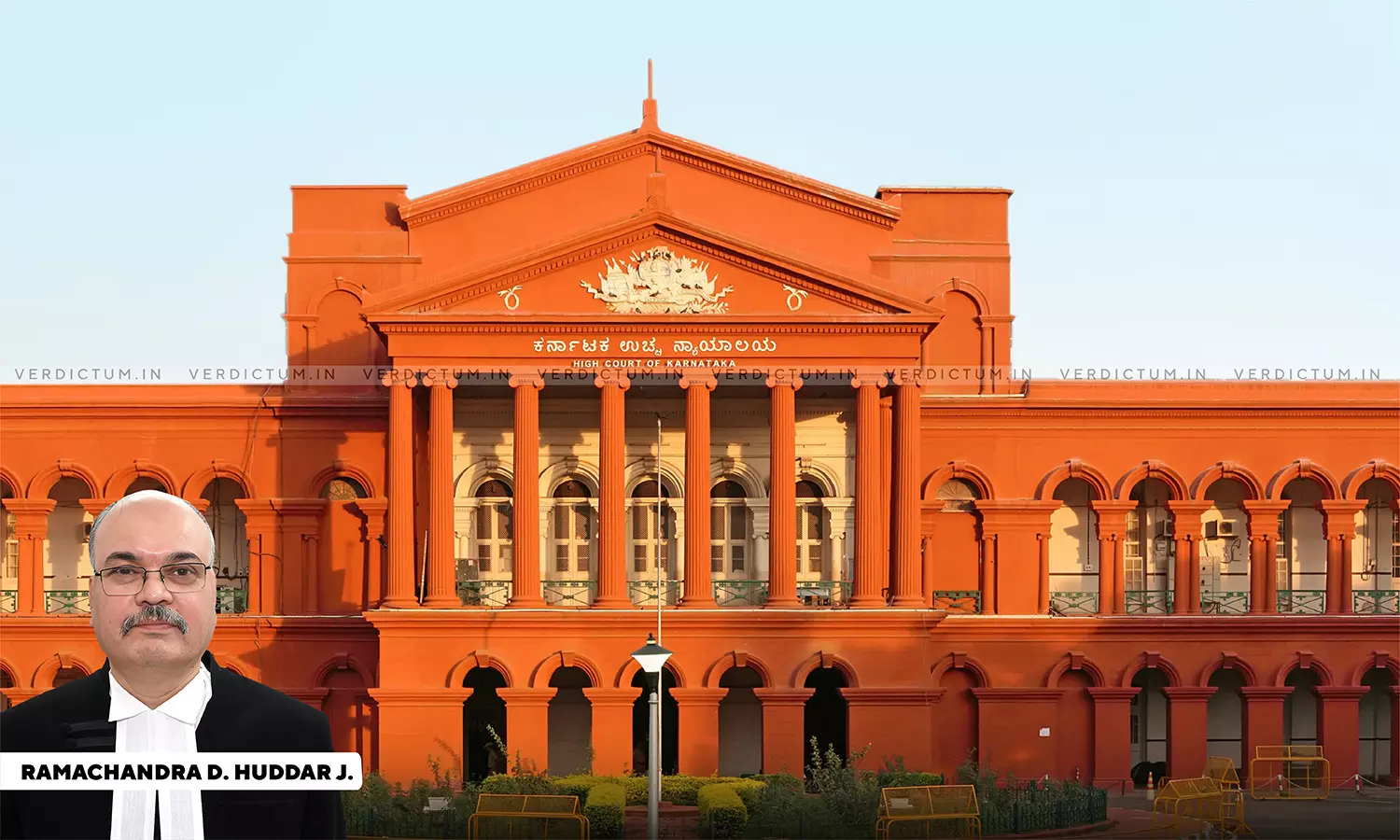
Accused Could Not Explain How He Came In Possession Of Counterfeit Currency Notes: Karnataka HC Upholds Conviction U/S 489C IPC
 |
|The Karnataka High Court upheld conviction of an accused under Section 489C of Indian Penal Code observing that he was found in possession of counterfeit notes and there is no explanation offered on how he came in possession of the said notes.
The Court observed thus in a criminal appeal filed by the accused challenging the judgment of his conviction and order of sentence passed by the Trial Court under Section 489C of the Indian Penal Code (IPC).
A Single Bench of Justice Ramachandra D. Huddar held, “… in this case also accused was found in possession of counterfeit currency note and were recovered from his possessions which were fake to the naked eye. All the notes contained same number, they were the photocopies of genuine note and the colour is different. This itself is sufficient to prove mens rea.”
Advocate P. Nataraju appeared on behalf of the appellant/accused while HCGP Divakar Maddur appeared on behalf of the respondent/State.
Brief Facts -
It was alleged that the accused in 2010 used the counterfeit currency notes with an intention of trafficking the same. When the raid was conducted, he was found in possession of 30 counterfeit currency notes bearing single currency 2BE901745 of denominations of Rs. 500/- each knowing fully well that the same were counterfeit notes with an intention to use the same as genuine notes.
Thus, a case was registered against him under Sections 489-B and C of IPC. The Trial Court on hearing the arguments and evaluation of the evidence, found the accused guilty of committing the said offences and sentenced him for a rigorous imprisonment of 5 years along with a fine of Rs. 3,000/-. Being aggrieved by his conviction, he was before the High Court via an appeal.
The High Court in view of the facts and circumstances of the case noted, “As rightly observed by the trial Court, there is no evidence that there is no reason to believe the said currency notes were forged one. None of the witnesses have noticed about the mens rea of accused which is conspicuously absent in this case. Therefore, in the absence of any evidence brought on record by prosecution, it has failed to demonstrate that the accused has committed the offence under Section 489-B of the IPC.”
The Court further noted that the accused was found in possession of counterfeit currency notes which were not genuine Indian currency notes, was having knowledge about the same, and offered no explanation.
“After seizure of currency notes as per the prosecution papers they were seized. There is evidence that accused was in custody of the said counterfeit currency notes and on seeing the police, he tried to escape from the said place. But, he was caught hold. The conduct of the accused shows his guilty mind and conscious possession”, it said.
Furthermore, the Court observed that the accused was found in possession of 30 such counterfeit currency notes which were not real Indian currency notes as per the report of Bharathiya Reserve Bank and thus has committed the offence under Section 489-C of IPC.
"Accused was found in possession of said notes and there is no explanation offered by the accused that how he came in possession of the said counterfeit notes. From the evidence brought on record, as per the case of the prosecution the offence under Section 489-C is duly proved in accordance with law..Therefore, I do not find any factual or legal error committed by the trial Court in coming to such conclusion. I do not find any illegality or infirmity in the impugned judgment. Therefore, appeal lacks merit and is liable to be rejected”, it concluded.
Accordingly, the High Court rejected the appeal and confirmed the conviction of the appellant.
Cause Title- T.N. Kumara v. State of Karnataka (Neutral Citation: 2024:KHC:35315)